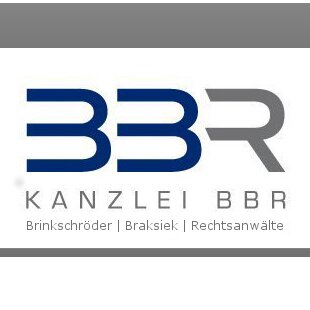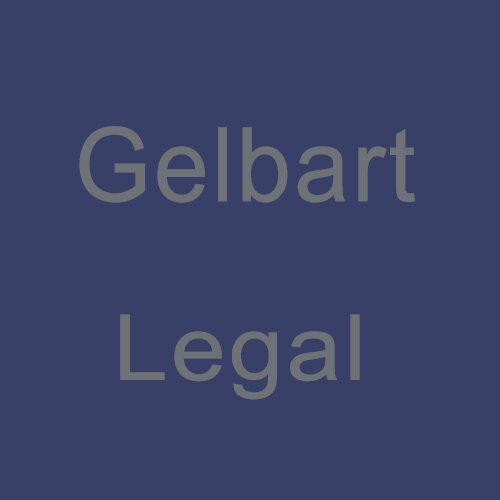Best Government Contract Lawyers in Germany
Share your needs with us, get contacted by law firms.
Free. Takes 2 min.
Or refine your search by selecting a city:
List of the best lawyers in Germany

About Government Contract Law in Germany
Government contract law in Germany revolves around the legal framework governing agreements between public sector bodies and private sector entities. This area of law ensures that contract award procedures are fair, transparent, and non-discriminatory, adhering to both national regulations and European Union directives. German public procurement is primarily regulated by the Gesetz gegen Wettbewerbsbeschränkungen (GWB), the Vergabeverordnung (VgV), and sector-specific procurement regulations.
Why You May Need a Lawyer
Seeking legal advice in government contracts is crucial for both public entities and private companies. Businesses may require legal assistance to navigate the complexities of bidding processes, ensure compliance with legal requirements, or address disputes during contract execution. Public authorities often need legal support to prepare procurement documents, evaluate bids lawfully, or handle challenges from unsuccessful bidders. A lawyer specialized in government contracts can provide invaluable insights, help mitigate risks, and ensure that all procedures adhere to legal standards.
Local Laws Overview
In Germany, government contracts are governed by both national and EU regulations, ensuring accountability and fairness in public procurement. The key legal instruments include:
- GWB (Act Against Restraints of Competition): Contains specific provisions for public procurement, promoting competitive processes.
- VgV (Procurement Ordinance): Defines procedures for awarding contracts in the public sector.
- Richtlinien: EU directives that set harmonized rules across member states, which are transposed into national law.
These regulations collectively aim to foster competition, prevent corruption, and ensure efficient use of public funds.
Frequently Asked Questions
1. What entities are considered contracting authorities in Germany?
In Germany, contracting authorities typically include federal, state, and local governmental bodies, along with certain utilities and publicly-owned companies when a contract is publicly funded.
2. What types of contracts fall under public procurement regulations?
Public procurement regulations apply to supply contracts, service contracts, and works contracts involving construction activities that meet certain threshold values set by the EU and national laws.
3. How are government contracts typically awarded?
Contracts are usually awarded through open, restricted, or negotiated procedures, depending on the contract's nature and scope. Certain direct awards are possible under specified conditions.
4. What is the role of the Vergabekammern (Public Procurement Tribunals)?
Vergabekammern are responsible for reviewing procurement decisions and addressing complaints regarding alleged breaches of procurement law by contracting authorities.
5. Can foreign companies participate in German public tenders?
Yes, under EU principles of non-discrimination, foreign firms are allowed to participate in public tenders in Germany, provided they meet the same criteria as domestic companies.
6. What legal remedies are available for unsuccessful bidders?
Unsuccessful bidders may seek a review by filing complaints with the Vergabekammern. If unsatisfied, they can appeal to higher courts for further judicial review.
7. How are disputes in government contracts resolved?
Disputes may be resolved through pre-action negotiations, recourse to the Public Procurement Tribunals, or litigation in administrative courts.
8. Are there legal consequences for non-compliance with government contract regulations?
Yes, non-compliance can result in contract cancellation, financial penalties, or debarment from future public tenders.
9. What is the significance of the threshold values in procurement?
Threshold values determine the procurement process applicable, with contracts above certain limits subjected to EU-wide invitations to tender and below adhering to national rules.
10. What documentation is generally required for participation in public tenders?
Typical documentation includes business registration certificates, tax compliance confirmations, financial statements, and proof of technical capability.
Additional Resources
The following resources and organizations can provide further assistance and guidance in government contracting:
- Bundeskartellamt: The Federal Cartel Office, responsible for competition enforcement.
- Vergabekammern: Regional public procurement tribunals.
- Chambers of Industry and Commerce (IHK): Offer consulting services for businesses engaged in public tenders.
- EU Publications and Directives: Provide guidelines and legal framework on public procurement across member states.
Next Steps
If you need legal assistance in government contracts, follow these steps:
- Consult a lawyer specializing in public procurement to understand your rights and obligations.
- Review your specific case with your legal advisor, focusing on compliance with current regulations and strategic planning.
- Ensure all necessary documentation is accurate and ready for submission in tenders.
- Consider attending workshops or seminars on public procurement offered by legal firms or industry chambers to stay informed of the latest developments.
Being proactive and informed can secure your success and mitigate risks in government contracting processes.
Lawzana helps you find the best lawyers and law firms in Germany through a curated and pre-screened list of qualified legal professionals. Our platform offers rankings and detailed profiles of attorneys and law firms, allowing you to compare based on practice areas, including Government Contract, experience, and client feedback.
Each profile includes a description of the firm's areas of practice, client reviews, team members and partners, year of establishment, spoken languages, office locations, contact information, social media presence, and any published articles or resources. Most firms on our platform speak English and are experienced in both local and international legal matters.
Get a quote from top-rated law firms in Germany — quickly, securely, and without unnecessary hassle.
Disclaimer:
The information provided on this page is for general informational purposes only and does not constitute legal advice. While we strive to ensure the accuracy and relevance of the content, legal information may change over time, and interpretations of the law can vary. You should always consult with a qualified legal professional for advice specific to your situation.
We disclaim all liability for actions taken or not taken based on the content of this page. If you believe any information is incorrect or outdated, please contact us, and we will review and update it where appropriate.
Browse government contract law firms by city in Germany
Refine your search by selecting a city.














